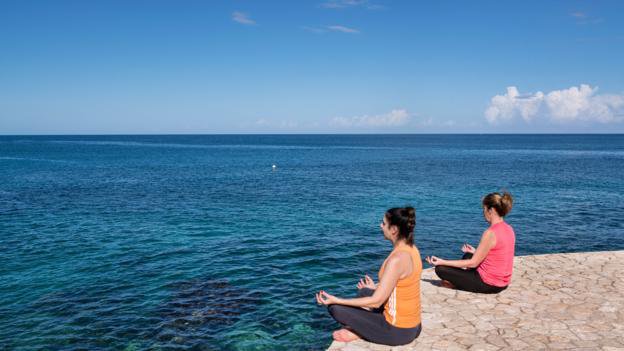The compelling case for working a lot less

my notes ( ? )
the part of the brain that activates when you’re doing ‘nothing’... default-mode network (DMN), plays a crucial role in memory consolidation and envisioning the future... helps you recognise the deeper importance of situations... birthplace of creativity, the DMN lights up when you’re making associations ... coming up with original ideas... where your ‘ah-ha’ moments lurk...
if we don’t take time to turn our attention inward, we lose a crucial element of happiness... just doing things without making meaning out of it... you don’t have to do absolutely nothing ... rest is important. But so is active reflection... visualising hypothetical outcomes or imagined scenarios... getting lost in a good book ...
When both adults and children were sent outdoors, without their devices, for four days... creativity and problem-solving improved by 50%... taking just one walk, preferably outside... significantly increase creativity... Any other tasks that don’t require 100% concentration also can help, like knitting or doodling.
Read the Full Post
The above notes were curated from the full post www.bbc.com/capital/story/20171204-the-compelling-case-for-working-a-lot-less.Related reading
More Stuff I Like
More Stuff tagged happiness , creativity , productivity
See also: Digital Transformation , Personal Productivity , Innovation Strategy , Psychology